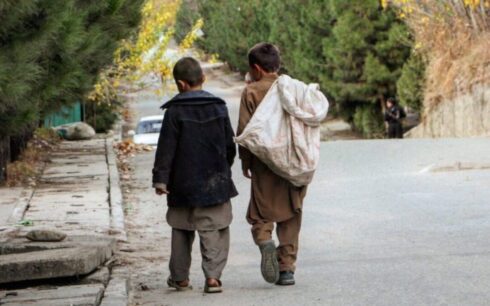As hundreds of thousands of pilgrims performed the Hajj rituals at Arafat on Saturday, the Taliban announced a divergent schedule, declaring Sunday as Arafat Day and Monday as the first day of Eid al-Adha.
This decision has sparked confusion and frustration among Afghan citizens, who are now uncertain about which observance to follow.
Political analysts suggest that the Taliban’s actions indicate a push for religious independence, aiming for the Islamic world to adhere to their “Amir al-Mu’minin,” a title for their reclusive leader who has yet to appear publicly.
The announcement comes as senior Taliban leaders, including Sirajuddin Haqqani, acting Minister of the Interior, Abdul Kabir, political deputy of the Taliban’s Prime Minister, and Noor Mohammad Saqib, acting Minister of Hajj and Religious Affairs, performed the Arafat rituals on Saturday in Saudi Arabia, despite the Taliban’s declaration of Sunday as Arafat Day.
Some religious scholars view the Taliban’s decision as politically motivated and contrary to the Hanafi school of thought. “This act contradicts the well-known opinion in the Hanafi section and is considered to be a political decision,” said Fazl Hadi Wazin, a religious scholar. “The Taliban is seeking to declare its independence and even show dominance in religious and legal matters. However, political issues should not interfere with religious matters and rituals.”
Political experts also accuse the Taliban of exploiting Islam for political purposes. “This action by the Taliban reflects the contradiction between the current Afghan government’s policies and the Islamic community, leading to disunity among people worldwide. Religious practices should not be used for political gains, as it affects the Afghan people,” said Najib Rahman Shamal, a political analyst.
Citizens have voiced their confusion and frustration. “The issue that has concerned the people is about the day of Arafat. Saudi Arabia announced today as the day of Arafat and tomorrow as Eid al-Adha, while the Islamic Emirate declared tomorrow as Arafat and the day after as Eid,” said Mohammad, a resident of Herat. Suhaila, a resident of Badghis province, echoed this sentiment: “We are completely confused. We don’t know whether to follow the Taliban’s Supreme Court or Saudi Arabia.”
In addition to the announcement, the Taliban has reportedly threatened to cut the salaries of government employees who were absent on Saturday, which was a designated working day.
Political analysts believe that the Taliban’s pursuit of religious independence reflects a broader pattern of actions that diverge from the Islamic world. “The religious education of some Taliban leaders, including their supreme leader, is very limited. It is based on what they learned in foreign madrassas,” said Torek Farhadi, a political analyst. “Therefore, we should not be surprised if they mention things that are not in line with the beliefs of nearly two billion other Muslims.”
Despite claiming adherence to Sharia laws, the Taliban’s restrictive policies on women and girls, including limitations on access to work and education, continue to face strong condemnation from the global Islamic community.





